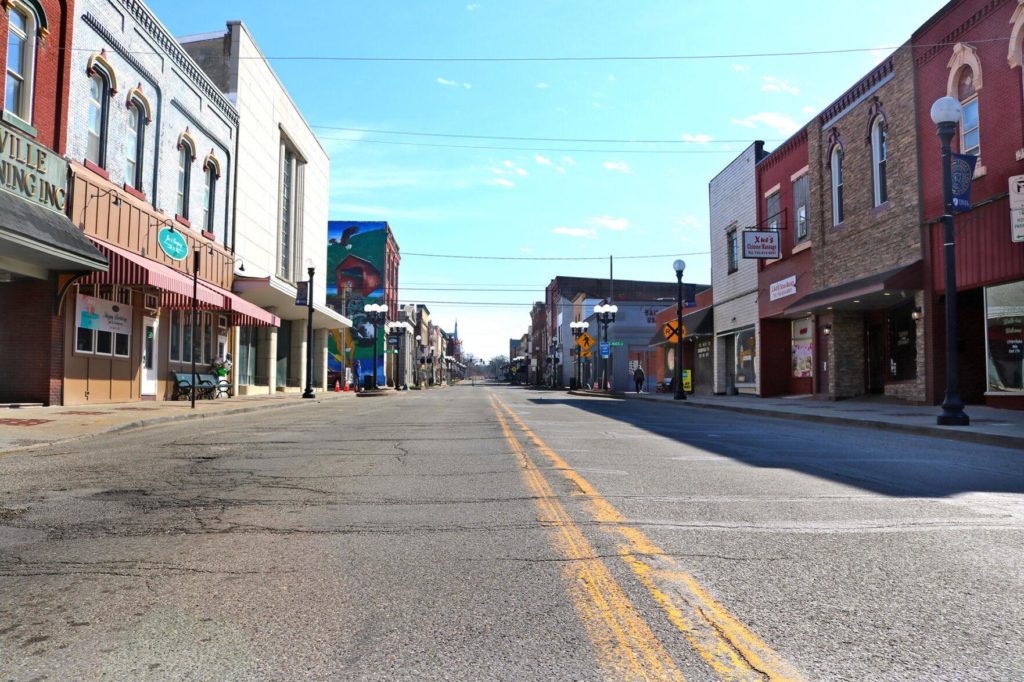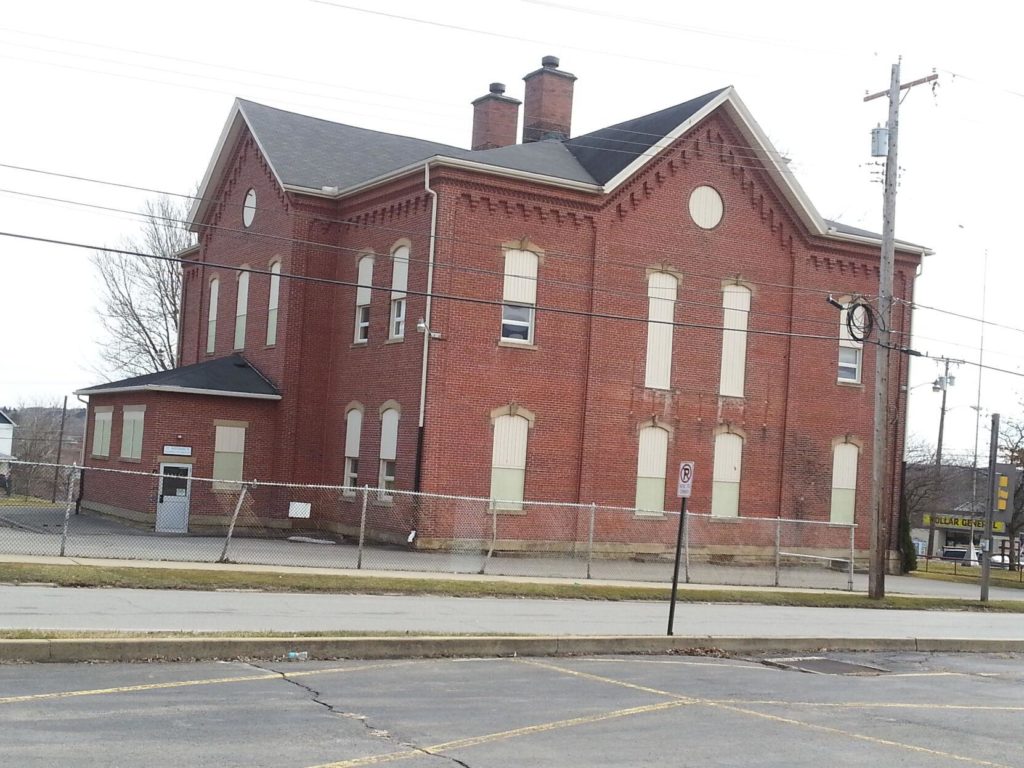
GREENVILLE – The partial collapse of a three-story brick building on Main Street last week has placed renewed emphasis on issues related to economic development and blighted properties along the downtown business corridor.
The building in question, located at 173 Main Street, suffered another partial collapse a few weeks earlier, according to Manager Jasson Urey. As a result of the more recent collapse, Main Street has been closed between Water and Mercer streets, with local traffic being diverted onto Clinton and Shenango streets.
And it’ll stay that way, according to Urey, “until something is done with that building, whether that means being demolished or shored up.”
Greenville is in Act 47 economically distressed status. The town created an economic development plan and used funds from two planning and assessment grants from the Environmental Protection Agency to evaluate properties downtown and elsewhere for environmental issues and potential uses.
Repairing or demolishing those buildings is an entirely separate process, however.
“We’re still trying to grasp how to handle this,” Urey said. “A lot of the building owners in town don’t have the resources it’s going to take to fix these old brick buildings on their own. Nor do we … have the resources to handle it on our own.”
A blight remediation grant for fixing or removing old buildings “is a start,” according to Urey, “but it’s just not enough money to address the issues we have.”
In the meantime, the borough is on the lookout for possible solutions.
“Are there funds we can draw from on an emergency basis? And, long-term, are there ways for us to help these property owners address these issues?”
St Michael’s School

The town’s economic development efforts are beginning to pay dividends in other areas, however. Greenville council agreed last month to provide a letter of support on a project to turn the former St. Michael’s School, 35 W. Main St., into affordable housing for low-income seniors.
Hermitage-based Hudson Companies plans to develop the project.
Hudson Companies Director of Development Kelley Coey said Hudson had officially closed on the St. Michael’s School property and would be “in front of the planning commission very soon” in search of approval and funding.
“When’s move-in day?” council member Sean Hall enthusiastically asked.
Coey informed the council that a best-case scenario would see tax credits for the project being awarded in October, followed by a lengthy permit process, with groundbreaking expected to take place next spring. Construction will likely take an additional year, according to Coey, which could see the facility officially open its doors in spring 2024.
Coey called Greenville’s application for the necessary tax credits “compelling,” and the state awards them to only about 30 out of about 100 applicants each year.
“They want to invest in towns that have already invested in themselves,” Coey said. “And your economic development plan is very compelling.”
Council member Tracy Biel expressed enthusiasm for the St Michael’s School project, saying it was “wonderful to see that our hard work [on the economic development plan] is going to mean something.”
Penn Northwest Development Corporation Executive Director Rod Wilt, said housing for low-income seniors is an important resource that often gets overlooked.
“Everybody has to give a little to help make it affordable,” Wilt said, stating that often such projects “just never happen, and that segment of the population doesn’t get served.”
Urey agreed, saying he has been working with Hudson on the application since the meeting in March.
“Affordable senior housing is needed in our community,” Urey said. “That’s something that was identified in our economic development plan. There’s a need on that side of town, and we specifically identified St. Michael’s School as a potential place for it.”
